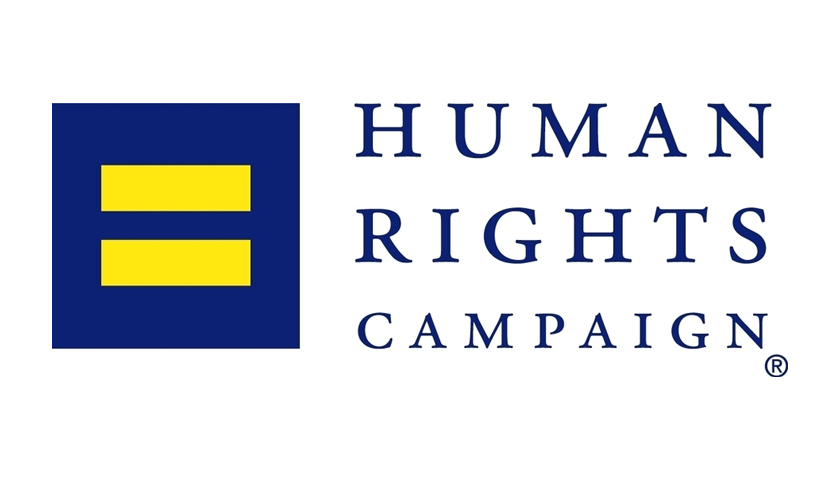The Human Rights Campaign (HRC) Foundation, the educational arm of the nation’s largest lesbian, gay, bisexual, transgender and queer (LGBTQ+) civil rights organization, released new data detailing how LGBTQ+ community members believe ending the blood donation ban should be priority for the Biden-Harris Administration. The data reveal that nearly three-quarters of the LGBTQ+ community find the current blood donation policy, which prevents gay, bisexual, queer, and same-gender loving (GBQ/SGL+) men from donating blood if they had reported sexual conduct with a man in the prior 90 days, unacceptable. Over half (57.9%) of LGBTQ+ respondents agree or strongly agree that the proposed FDA changes to the blood donation policies, which would drop specific deferral guidelines for GBQ/SGL+ men, are a step forward; however, almost three quarters (72.3%) believe the proposed policy is still discriminatory, as a significant number of individuals would still be ineligible to donate. Nearly 90% believe the federal government needs to prioritize investing in more technologies and research to expand eligibility.
Although these new proposed guidelines are a real step forward in ending blood donation discrimination, they are still lacking in some key ways — namely, the continued ban on individuals using PrEP. This report shows that the LGBTQ+ community sees blood donation discrimination as a major issue to be remedied, and unfortunately the updated policy would still implicitly discriminate against many in our community. We’re calling on the federal government to further invest in research and technology so that more people can donate blood and save lives while maintaining the safety of the blood supply.”
Currently, GBQ/ SGL+ men are banned from donating blood if they had reported sexual conduct with a man in the prior 90 days; the same requirement is not in place for other men, or any women, regardless of their sexual partners or behaviors. The proposed guidelines move away from a time-based deferral on donations from GBQ/SGL+ men to an individualized behavior assessment for all prospective donors. Under this new approach, people will be screened on their sexual behavior, rather than their sexual orientation. However, the new guidelines would effectively ban any individual on Pre-Exposure Prophylaxis (PrEP) from donating blood. PrEP has been found to be over 99% effective at preventing HIV during sex when taken adequately. Nearly half of respondents reported feeling frustrated that the new guidelines excluded individuals on PrEP, while nearly a third reported feeling frustrated that the new guidelines excluded people based on their number of sexual partners.
As a result, the proposed guidance would still disproportionately exclude LGBTQ+ donors. Over a quarter (28%) of LGTBQ+ respondents, including almost four in ten (37.7%) GBQ/SGL+ men, would be ineligible to donate blood under the proposed guidance. Almost three-quarters (72.3%) of all LGBTQ+ respondents — and over three-quarters of GBQ/SGL+ men (76.5%) — felt the proposed policy was still discriminatory against GBQ/SGL+ men.
Other key findings from the report include:
-
If they were to become eligible, half of LGBTQ+ adults (49.7%), and of GBQ/SGL+ men specifically (54.4%), would be likely, or extremely likely, to donate blood in the next year.
-
Six in ten respondents agreed that ending the current blood donation ban would be one of the most significant policy victories for the LGBTQ+ community in recent years, and nearly three-quarters said that ending the ban should be a priority for the Biden-Harris Administration.
-
Almost half of respondents reported feeling frustrated that the new guidelines excluded individuals on PrEP.
-
57.9% of LGBTQ+ respondents agree or strongly agree that the proposed changes to the blood donation policies are step forward. However, 25.9% disagreed.
-
54.2% of GBQ/SGL+ men agree or strongly agree the proposed changes are a step forward, but they are significantly less likely to feel this way than LGBTQ+ people of other identities/genders (63% agree or strongly agree).
-
72.3% of all LGBTQ+ respondents — and 76.5% of GBQ/SGL+ men — felt the proposed policy still discriminates against GBQ/SGL+ men.
-
28.0% of LGBTQ+ respondents, and 37.7% of GBQ/SGL+ men, would remain ineligible to donate blood under the proposed guidance.
-
Over half of all LGBTQ+ respondents, and over six in ten GBQ/SGL+ men, reported that being turned away under proposed guidance for being on PrEP and/or reporting new or multiple anal sex partners, would make them feel stigmatized or unfairly targeted for being LGBTQ+.
Out of the 2,000 survey respondents, 87.8% believe the federal government needs to “prioritize investing in more technologies and research to allow more people to donate blood.” The technology exists today to prevent transmission of certain pathogens such as HIV in plasma and platelets. The technology to reduce pathogens in red blood cells is currently in Phase III Clinical Trials.
This survey shows that while LGBTQ+ people are excited to see FDA restrictions being loosened, there is an overwhelming desire for there to be a focus on improving technology rather than just choosing which people to discriminate against. Any step forward is a worthy step to take, but it is clear what community members want: to be able to donate blood and not have to worry about being discriminated against in the process.”
To read the full report, please visit HERE. Individuals wishing to comment on the proposed guidelines should visit https://action.hrc.org/qIQNz4Q. To learn more about HRC Foundation’s work on HIV and health equity, please visit hrc.org/campaigns/mybodymyhealth.
